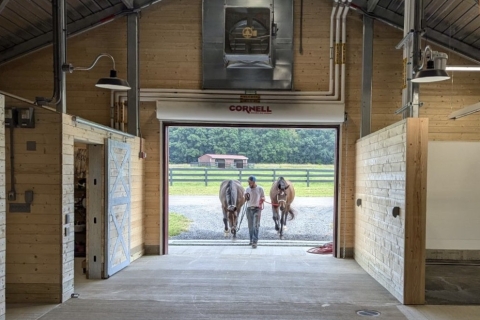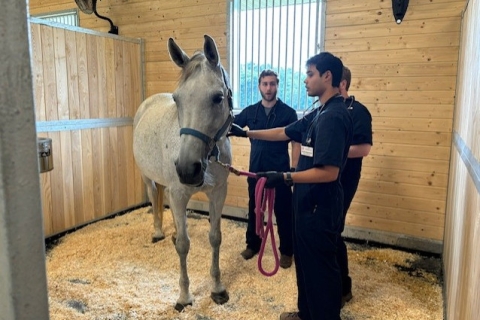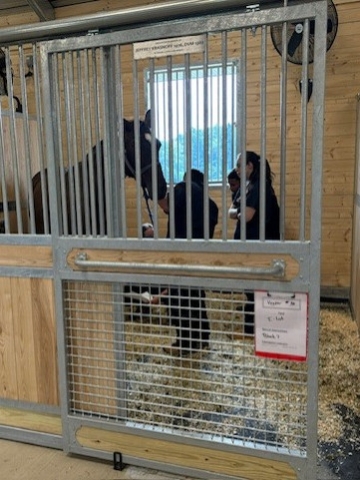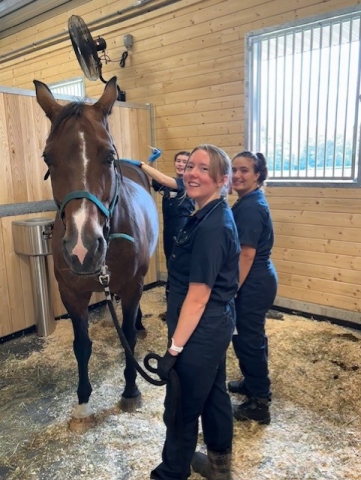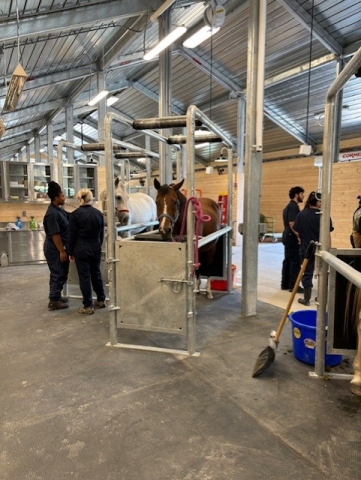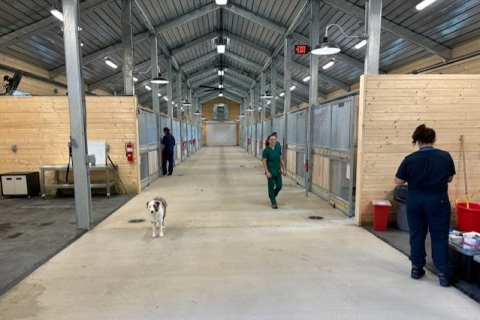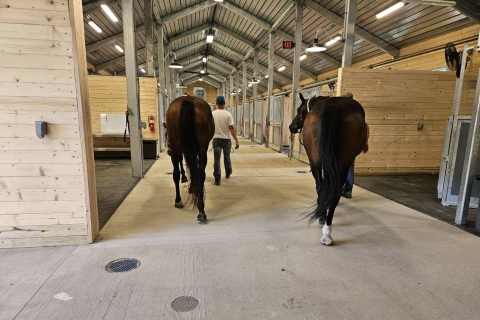Teaching
Horses teaching humans
While the Park is undoubtedly a home for groundbreaking research, there’s another mission that takes top-billing: training the next generation of equine experts. “The whole purpose of having these horses, ultimately, is for teaching,” says Dr. Soon Hon Cheong. Horses donated to the Park may have a bad neck or knee due to their previous careers, and each become a useful teaching tool for students who need to learn to examine and diagnose equine patients. “The availability of these Cornell-owned horses is really advantageous,” says Cheong. “It creates an invaluable learning experience for our students.” Students practice ultrasounds, inseminations, palpations and other key clinical skills for equine medicine.
It’s not just the horses themselves that are teaching tools—the entire facility is a learning lab. “At other schools you may have a small barn for horses,” notes former barn manager Carol Collyer. “But the Equine Park is a real operating farm; students see the same situations that you would working as an equine practitioner. It’s very much an on-the-farm experience. Students are learning a well-rounded aspect of horse-care management and veterinary care all rolled into one."
The New Equine Park in Pictures
This fall, students conducted their first labs in the new space. Photos: Jess Crumb/CVM




